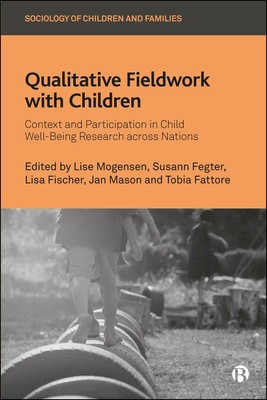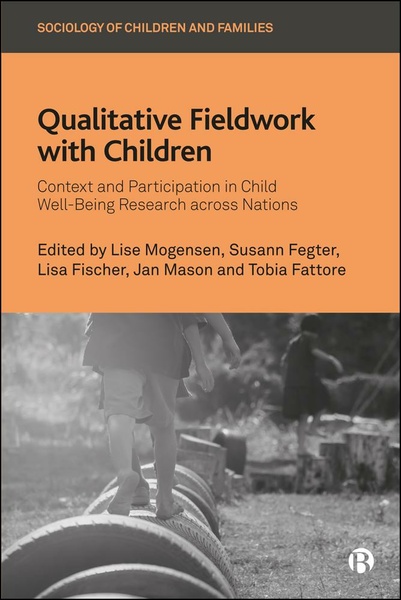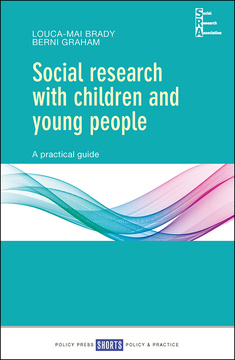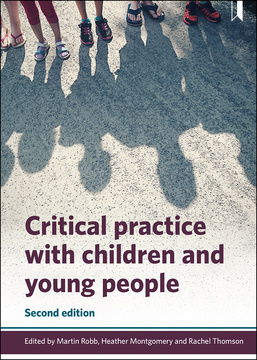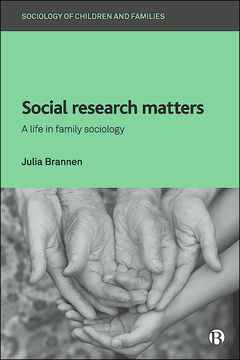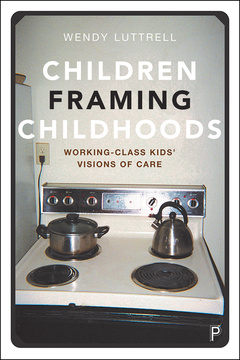Qualitative Fieldwork with Children
Context and Participation in Child Well-Being Research across Nations
Edited by Lise Mogensen, Susann Fegter, Lisa Fischer, Jan Mason and Tobia Fattore
ISBN
978-1529228069Dimensions
234 x 156 mmImprint
Bristol University PressISBN
978-1529228076Dimensions
234 x 156 mmImprint
Bristol University PressDrawing on the multinational qualitative study ‘Children’s Understandings of Well-being’ (CUWB), this unique edited collection offers practical insights into conducting fieldwork across diverse geographical, social and cultural contexts, using the same basic protocol.
The book explores the practical, ethical and philosophical challenges the researchers faced, and the ways in which these issues were dealt with by the different research teams. Contributors provide rare insights into the diverse institutional requirements and professional practices highlighting the way research methods are embedded in contexts that are at one and the same time both local and global.
With contributions from experts in child well-being research from Argentina, Australia, Canada, Chile, Germany, Romania, South Africa, Switzerland, Turkey, the UK and the US, the book provides valuable perspectives for researchers across a wide range of settings.
Lise Mogensen is Senior Lecturer in Medical Education at Western Sydney University and a researcher on the Australian Children's Understandings of Well-being (CUWB) team.
Susann Fegter is head of the department of General and Historical Educational Science at Technische Universität Berlin and project leader of the CUWB research project.
Lisa Fischer is a research assistant at Technische Universität Berlin.
Jan Mason is Emeritus Professor in the School of Social Sciences at Western Sydney University and was a project leader of the CUWB research project.
Tobia Fattore is Senior Lecturer at Macquarie University and was a coordinating lead researcher on the CUWB research project.
1. Introduction - Lise Mogensen, Susann Fegter, Lisa Fischer, Jan Mason, Tobia Fattore
Part 1: Doing Research That Is Inclusive of Vulnerable Child Populations
2. Conducting Participatory Research with Children in Constrained Contexts: Methodological and Ethical Considerations for Training Emerging Researchers in Cape Town, South Africa - Shazly Savahl, Sabirah Adams, Deborah Sinclair, and Graciela Tonon
3. Studying the Subjective Wellbeing of Children with a Migrant Background in Malta: A Qualitative, Child-Friendly Approach - Carmel Cefai, Noemi Tari Keresztes, Natalie Galea and Rachel Spiteri
4. Conducting Research with Refugee Children: Methodological Challenges and Issues Involved with the Cuwb Project in Greece - Antoanneta Potsi, Lydia Ntokou, Zoi Nikiforidou
5. Working with Children with Diverse Needs: The Importance of Critical Reflexivity in Hearing Children’s Voices in Well-Being Research: Experiences in Australia - Lise Mogensen, Jan Mason, Tobia Fattore, Gabrielle Drake
6. Adapting the Focus Group Methodology for Studying the Wellbeing of Children with Intellectual Disabilities Enrolled in Romanian Special Schools - Claudia Bacter, Crina Lezeu, Sergiu BăLțăTescu
Part 2: Using Specific Tools and Methods in Qualitative Research with Children
7. A Collaborative Methodological Approach for Understanding Children’s Well-Being in Schools in Chile: Photographs to See Them/Us and Listen to Them/Us - Lorena Ramírez-Casas Del Valle, Verónica López Leiva, Jaime Alfaro Inzunza
8. (Re) Integrating Auditors in Qualitative Research with Children. South Dakota, USA - Daniel A. Decino, Lisa A. Newland, Gabrielle A. Strouse, Daniel J. Mourlam
9. Revisiting Observation in Research with Children: Studying Socio-Economic Inequality and Child Well-Being in Buenos Aires, Argentina - Graciela Tonon, Damian Molgaray
10. The Value of Task-Oriented Methods in Well-Being Research: Reflections on Methodology and the Introduction of Avatars in Film-Making with Children in an English Study - Colette Mcauley
11. Team Meeting and Field Notes as a Source for Reflection on the Challenges in Engaging Children as Research Partners: The Workings of a Research Team from Quebec, Canada - Christine Gervais, Isabel Côté, Katerine Brisebois
Part 3: Power-Relations and Vulnerability in Researching with Children
12. The Re-Constitution of Children/Childhood and Adults/Adulthood in the Research Process - Christine Hunner-Kreisel, Stella Maerz
13. Transactional Horizons as Mitigation of Power Imbalance in Adult-Child Interviews - Daniel Stoecklin
14. On Vulnerability in Interview Situations in the Field of Childhood Research.
Veronika Magyar-Haas, Catrin Heite
15. The Importance of Narratives: Scrutinizing the Subjective Well- Being of Children in the Case of Istanbul, Turkey - Emre ErdoğAn, PıNar Uyan-Semerci, BAşAK Akkan, Serra MüderrisoğLu
16. “Actually, Hardly Anything Happened as Planned” – Flexibility and Openness in the Research Process as a Response to Power Asymmetries between Adults and Children - Susann Fegter, Lisa Fischer, Laura Besenhard, Laura Juds, Jana Huber
17. Conclusion - Lise Mogensen, Susann Fegter, Lisa Fischer, Jan Mason, Tobia Fattore







